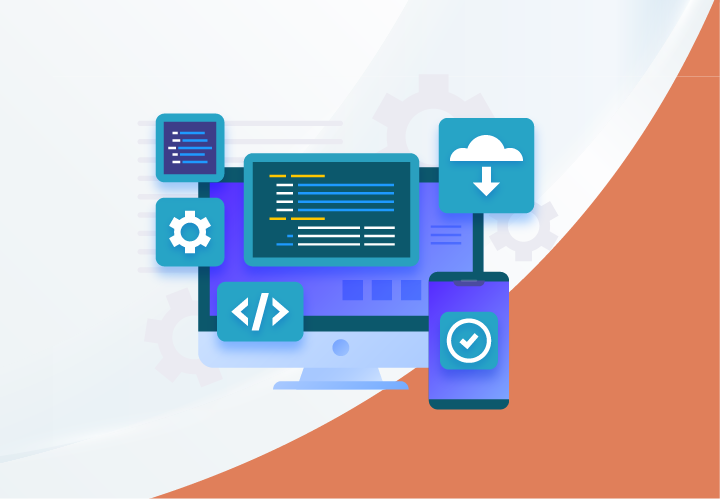Enterprise Software Development and Microservices Architecture Internship Program
in MCAAbout this course
Enterprise Software Development & Microservices Architecture Internship Program: 6-Week Structured Learning and Experience
Introduction
Enterprise software development focuses on building large-scale, secure, and scalable applications that support critical business processes. This internship program equips participants with the skills to develop, deploy, and manage enterprise applications using Java Spring Boot or .NET Core, along with microservices architecture principles. Participants will gain hands-on experience in API development, microservices design, service discovery, cloud deployment, and security—essential skills for modern enterprise software engineers.
The program is designed for developers and software engineers who want to transition into enterprise application development. The final project consolidates all concepts into a real-world microservices-based enterprise application.
Program Highlights
Week 1: Introduction to Enterprise Development & Tools Setup
· Enterprise Software Concepts: Explore what differentiates enterprise software from standard applications, with case studies on ERP and CRM systems.
· Development Environment Setup: Install and configure Java (IntelliJ/Eclipse) or .NET (Visual Studio) and run a "Hello World" program.
Week 2: API Development with Spring Boot or .NET Core
· Building REST APIs: Develop a simple REST API using Spring Boot that returns a greeting message.
· CRUD Operations: Create an employee management system with database interactions (H2 or SQLite).
Week 3: Microservices Architecture & API Gateway
· Monolithic vs. Microservices: Understand architectural differences, benefits, and industry examples.
· Building Microservices: Develop User and Order microservices with REST APIs.
· Service Discovery: Implement Eureka Server or Consul for dynamic service registration.
· API Gateway: Configure Spring Cloud Gateway or Ocelot (.NET) for centralized API routing.
Week 4: Deployment, Containerization, and Cloud Integration
· Dockerizing Microservices: Create Dockerfiles and manage containers using Docker Compose.
· Kubernetes Basics: Deploy applications to Minikube, understanding Kubernetes architecture.
· Cloud Deployment: Deploy microservices to AWS EC2, Elastic Beanstalk, or Azure App Services.
Week 5: Security, Logging, and Documentation
· API Documentation with Swagger: Generate and test microservices endpoints using Swagger/OpenAPI.
· Centralized Logging: Integrate Logstash, Elasticsearch, and Kibana (ELK Stack) for log management.
· Securing Microservices: Implement JWT authentication for secure API access.
Week 6: Final Project – Enterprise Microservices System
· Enterprise Project: Develop a mini-inventory, HR, or e-commerce system with at least three microservices.
· End-to-End Deployment: Implement CI/CD, Docker, Kubernetes, and cloud hosting.
· Deliverables: Source code, architecture diagram, deployment guide, and a 2-3 min demo video.
Expected Outcomes
By the end of this internship, participants will:
· Understand enterprise software principles and key challenges.
· Develop REST APIs using Spring Boot or .NET Core.
· Implement microservices architecture with service discovery and API gateways.
· Deploy and manage microservices using Docker & Kubernetes.
· Integrate cloud services (AWS, Azure, or GCP) for enterprise applications.
· Enhance security using JWT authentication and log analysis with ELK Stack.
· Complete a real-world enterprise project, demonstrating end-to-end microservices development.
Requirements
Laptop
Internet Connection
VS Code
Comments (0)
Understand the definition, characteristics, and significance of enterprise software by exploring its real-world applications and analyzing its impact on organizations.
Gain hands-on experience in setting up a development environment for Java or .NET and verify the setup through a basic program execution.
Learn how to build a RESTful API using Spring Boot or .NET Core and test basic endpoints.
Implement Create, Read, Update, and Delete operations in a REST API with database integration.
Understand the principles and advantages of microservices over monolithic architecture.
Design and implement two independent microservices and enable basic interaction between them.
Implement dynamic service registration and discovery using a registry server.
Enable centralized routing and load balancing using an API Gateway.
Learn to package and run microservices using Docker containers.
Deploy microservices using Kubernetes and manage them with deployment files.
Deploy microservices on a cloud platform to explore scalability and availability.
Document REST APIs using Swagger UI for easier testing and collaboration.
Set up ELK Stack to analyze logs from microservices in real-time.
Secure microservices using JWT for authentication and authorization.
Build a mini-enterprise system using microservices architecture, applying all concepts learned.









